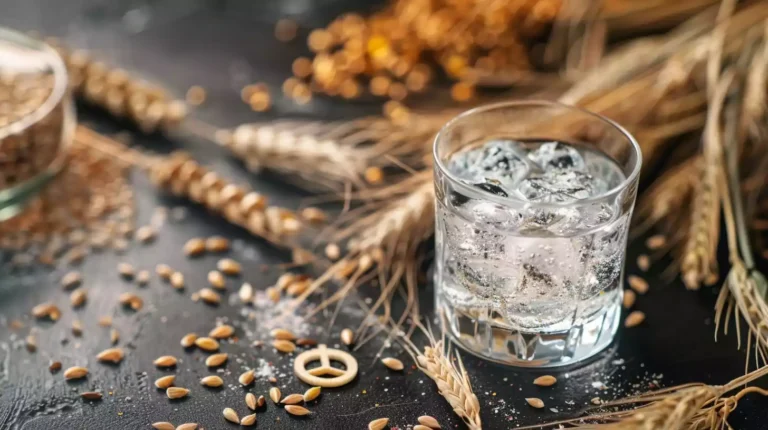Botanicals Behind The Flavor: Why Does Gin Taste Like Grass?
People who are used to drinking liquors may like the woody or heavier taste of whisky or cognac. However, when they sip some gin, they may be surprised at the taste, and some may not even like it.
They may reject it by claiming gin does not taste like liquor. Some may describe gin as too floral or earthy. At worst, some may also claim that gin tastes like grass. So why does gin taste like grass?
The herbs, fruits, and spices used to prepare gin may taste like grass. Collectively called botanicals, different makers use different mixes when preparing their gin. Some may use more herbs which makes their gin taste a little herbal. This may be the reason some think gin tastes like grass.
This article explores why gin tastes like grass. It also looks at the botanicals used to make gin and how they may cause some gins to taste like grass.
What Herbs Are Used To Make Gin?
Various herbs, fruits, and spices are used to make gin. These are commonly called botanicals.
Depending on the distiller, the combination and portion of botanicals may differ, making gin taste different in many ways. Common ones include juniper berries, coriander, angelica roots, and more.
Gin can differ from popular liquor such as whisky, brandy, or vodka. This is because gin has its flavor infused into the drink rather than through years or aging in barrels.
Gin often starts off as standard grain alcohol. The alcohol is then mixed with the botanicals to impart flavors. Steeping is common, while some distillers also prefer to add flavor during distillation.
When making gin, many distillers may use different botanicals. However, you may see more using the herbs and spices below, as they are the most common.
Juniper Berries
Juniper is one of the main ingredients in gin, with almost all gin distillers using it. Juniper trees grow almost in warm, sunny regions across Asia, Africa, Europe, and Central America. Juniper berries have a distinctive, piney flavor.
Angelica Root
Angelica trees grow in temperate regions or the northern hemisphere. The Angelica is known for its earthy and slightly sweet flavor, which makes it popular in gin making. It can also add depth and body to the gin.
Orris Root
Orris root may also be known as Queen Elizabeth root. Orris root is the main ingredient in potpourri and also body fragrance. It is also often used in the gin to add floral and sweetness to the drink. Orris root can also improve the texture and mouthfeel of the spirit.
Coriander
Coriander may also be called Cilantro in the US. Coriander is a common spice used to flavor food. It is also a common spice used in gin. It has a citrusy and slightly sweet flavor. Coriander is often used to even and mellow down the piney flavor of juniper. It can help to create a smoother-tasting gin.
Cassia Bark
Cassia bark originates from southern China and is used widely in gin making. Many distillers like its warm, cinnamon-like flavor. Cassia bark can also impart a hint of spice to gin, balance out other flavors in the spirit, and add some dryness to the gin.
Orange and Lemon Peel
Most gin distillers will add some citrus to impart refreshing flavors. The common ones include orange and lemon peel. They help brighten up gin’s overall flavor, adding a touch of brightness and acidity to the spirit.
Licorice Root
The licorice plant is popular for its medicinal properties. It is no surprise that it also ends up in many gin brands. Licorice root can impart a sweet and slightly anise-like flavor, helping to balance out other flavors in the spirit.
Cardamom
Cardamom is a type of spice that comes from Indonesia and India and is commonly used in cooking. However, some distillers add cardamom to their gin to impart a sweet and spicy flavor. Cardamom also adds a touch of warmth and depth to gin.
Cubeb Berries
Cubeb berries may also be called Java pepper and grow in Sumatra and Java islands in Indonesia. Distillers use cubeb berries in gin for their peppery flavor with hints of pine. They can add a touch of warmth and depth to gin, contributing to a warmer, rounder flavor.
Fennel Seeds
Fennel trees populate the coastal Mediterranean region and are known for their licorice-like flavor. As a result, they also end up in many brands of gin. Fennel seeds are also incorporated into gin that wants some sweet, star-anise flavor.
Why Does Gin Taste Like Grass?
Gin may taste like grass because of the herbs used in the botanicals. Some gin brands are known to use more herbs and fewer fruits and spices. This makes the gin taste and smells more herbal and earthy, which some drinkers may associate with grass.
Gin is distilled with a blend of herbs and spices called botanicals. What this means is that a gin gets its flavor from these botanicals.
As a result, how a gin taste is usually a reflection of the botanicals used in its making. Some gin styles, such as London Dry Gin, use a lot of juniper berries, which means the gin may taste juniper heavy.
Some gin types, such as Japanese gin, may reduce the juniper berries and add additional local botanicals such as Sakura flowers or green tea. As a result, Japanese gin may taste more floral and mellow.
Want to learn more about the difference between Japanese gin and London Dry gin? Read our full comparison: Japanese gin vs London Dry gin
If a gin tastes like grass, chances are the botanicals used to make the gin may be herb-heavy. This means fewer fruits, citrus, or spices are used to cut into the herbs, meaning the herbal taste tends to dominate in the gin.
Many drinkers may associate herbal, earthy taste with grass. If they drink a herbal-tasting gin, they may describe it as tasting like grass. However, a grassy taste may not mean the gin is bad. Some drinkers actually like grassy-tasting gin.
Final Thoughts
Gin has a unique taste that is often described as herbaceous or even grassy. This taste is due to the botanicals used in its production, which can include herbs, fruits, and spices.
Depending on the mix of botanicals used, some gins may have a stronger herbal or grassy flavor than others. While this flavor profile may not be to everyone’s liking, it is what makes gin such a beloved spirit for many.
So, the next time you take a sip of gin and detect a hint of grassiness, remember that it’s all part of the gin experience.






